Hi ,
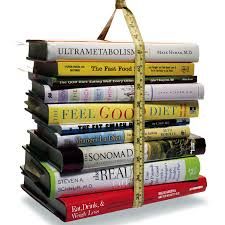
Have you ever noticed how many books there are on weight loss? How could there possibly be so much to say about such a physiologically simple process? Weight loss happens when you burn stored energy to do stuff. It is the same process as burning a log in your fireplace. You put a heavy log in the fireplace. You light it. It burns and gives off energy. When the energy is gone you are left with a scattering of very light ashes. Presto, that heavy log has lost its weight as gases go up the chimney and energy is released.
Our bodies do the same thing. We take fat or sugar (which has weight) and chemically burn it in our cells to produce energy and waste as CO2 gas. Presto, the weight of the fat or sugar is now gone – turned into energy and waste gas that goes out our chimney, the lungs. It sounds very simple, right? Then why is it so hard for people to lose weight when they want to?
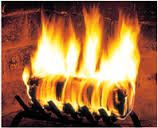
I think there are a couple of reasons why there are so many diet books – beyond the need of publishers to promote and sell books.
Reason number one is that people are all so different from each other they need different approaches to manipulating their metabolism towards weight loss. Reason number two is that nobody actually wants to diet and give up their pleasure foods. They want a way to diet and still be able to eat what they want. Since different people want to hold on to different things, there is lots of room to invent diets that keep certain different pleasure foods.
It is obvious that taking in more nutrients than you need to burn each day will make you fat. Your body just sets them aside for a rainy day. So to lose weight you need to create “rainy days” without food so your body will pull out that stored food and use it.
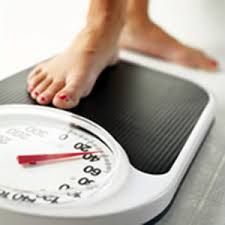
In general most weight reduction diets today fall into three basic camps, reducing calories, reducing carbs, or reducing fats. Reducing proteins does nothing for weight loss and reducing fibers just makes you constipated. So that only leaves total calories, carbs, and fats. Now a common sense approach to weight loss would be to reduce all three, calories, fats, and carbs. This does in fact work fabulously well. Such programs are used in medical facilities as protein sparing fasts. When you need to get weight off someone quickly for medical reasons, this is the way it is done. It works.
99% of people are not willing to do this to lose weight, even though it works because it eliminates all pleasure from eating. Consuming nothing but protein shakes and fiber wafers is really boring and not fun. Back in the 50’s and 60’s women used a variation of this protocol to lose weight to keep trim. They called it eating rabbit food (fiber) and a little bit of chicken breast (protein). All fat and carbs were eliminated. They were dropping their calorie consumption down to 600 to 700 calories a day. This worked fine for short periods – just enough to drop a dress size. But as a life style, it produced other health issues.
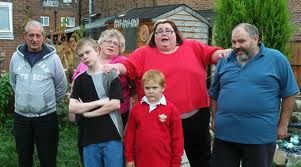
So where does that put us today? Half the population is overweight, a third medically obese. While carrying an extra 10 to 15 pounds as we grow older is actually associated with a lower mortality, an extra 20, 30, 50, 100 pounds just gets progressively more dangerous. We have gotten this way because we eat too much. Never before in history has a nation of people had such an abundance of food available to them. This cheap availability has enabled us to transform eating into a stress management tool, a sport, an expression of individuality and independence, and a host of other psychological games. Rarely do people eat because their bodies need nutrition anymore. Other reasons run our eating behaviors.
To make weight loss work today we have to return to eating for nutrition – to make our physical body feel good and run well. Choosing a diet because it will let us still have cheesecake, or fruit smoothies, or bread and crackers is not going to work. We have to do what works for our body, not our emotional pleasure seeking self. Pleasure seeking is in itself a major red flag as to the real reason behind weight retention. Trying to fill yourself with good feelings from the outside does not work – that is why the food piles on as excess weight. True pleasure comes from burning that stored energy as expressions of your heart and pursuits of your curious mind. Pleasure is a feeling that comes from outflowing to the world and delighting in appreciating what is. That is not what is happening when obese people eat. Numerous studies have shown that obese people stop even tasting what they are eating after the first couple bites.
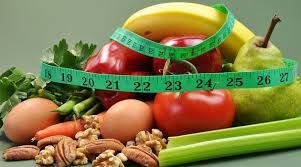
Exactly what foods you eat to lose weight will depend on what works best for your body – a trial and error discovery process. But there are a number of bits of body chemistry that will support you when you get in line with how the body works.
Number one is understanding that hormones control weight gain and loss. The most important of these is insulin. Insulin is the food storage hormone. It takes what you eat and ushers it into the cells either for use or for storage. Your storage cells are more sensitive to insulin than other cell types, so the more insulin you have in your blood stream, the more food you will be storing for later. So weight control begins with lowering insulin levels. Modern authors write about the hormones leptin and ghrelin which control insulin levels and hunger. While the information is interesting, measuring those levels is not available to us here in the real world, so we won’t focus on them.
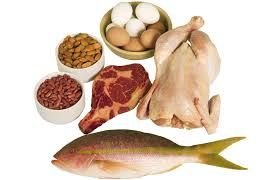
Insulin jumps up more with sugars and simple carbs and certain proteins. White proteins like chicken, turkey, egg white, and casein (cheese protein) keep insulin levels down, while whey, fish, and red meat proteins cause insulin to raise. For weight loss we don’t want insulin to raise, but if you are doing weight training for muscle gain then a whey protein taken within 15 minutes after a heavy lifting episode triggers insulin to open the muscles to take in more protein for muscle building. But for weight loss we want to keep insulin levels as low as possible.
Every time you eat, your insulin levels go up some. So that means you don’t want to eat very often and when you do you want to eat foods that don’t raise your insulin levels much like white proteins and non-starchy vegetables. Lots of little meals during the day keeps your insulin levels high and stops you from releasing any weight. Two or three square meals a day is all you want. Lots of little meals is for people with medical hypoglycemia issues, not for folks trying to lose weight – which is a problem if you fit both categories. Solve the hypoglycemia first before you try to lose weight.

People will say “but I might feel hungry!” That is actually a good thing. It is when you get hungry that your brain signals the body to produce the hormone glucagon that mobilizes your stored food for use. Hunger should only be the “I feel my stomach is empty” type of hunger. Your body has enough stored energy to keep you going without a dip in energy levels for a couple days. If you get the “I’m falling apart and going to crash” type of hunger, then this is a red flag that your blood sugar regulation system is messed up and needs some serious work. I address this issue through special protocols in the office.
A special problem I have been noticing in some patients lately is many do not have the stored quick energy (glycogen) that should keep them going when they get hungry. This is because they have been trying to do a low carb diet, but they are not doing it low enough to convert their energy system over to fat burning. The body always stays in carb burning if there are any carbs around to burn, because carbs are toxic to the body if left floating around in the blood. The body will not step into fat burning until all the carbs are used up. These people float on the edge of hypoglycemia all the time and feel like crap as a result. If you are going low carb, either go all the way or don’t go at all.
Part 2 – continued next week…
Take care,
David